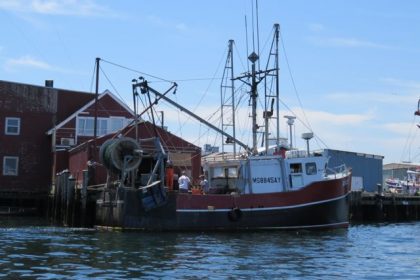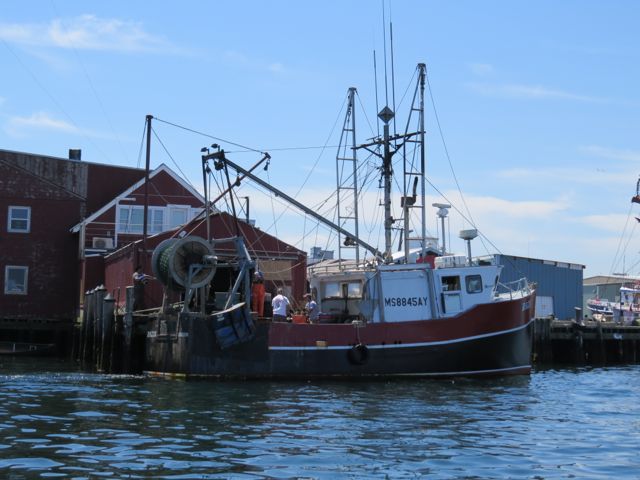

The Commonwealth of Massachusetts is hearing this month about the need to protect working waterfronts against the incursions of real estate development. Members of the Fish Locally Collaborative and other supporting organizations from the farming community are joining the fishing industry in Gloucester to urge the state to reject any proposals from Gloucester or other ports that would weaken the Designated Port Area protections for water dependent industrial use.
Threats to the viability of the fishing industry stem from the crowding out of waterfront space by hotels, restaurants, shops, condominiums, and recreational marinas. These real estate development pressures have been understood for a long time, and protective zoning has been put in place all over the country. The public interest, in terms of healthy local seafood, high wages, and a strong local economy, is the measure of zoning protection, not the ability of speculative real estate developers to outbid and purchase prime waterfront property for non-working uses.
As we’ve learned with rural farming communities, once infrastructure and farm related businesses were rezoned to accommodate other uses, as a nation we lost touch with where our food comes from, how it’s raised or grown, and whether the wealth of the land benefits the nation as a whole. With this came degradation of our environment, soil, and land-based food supply. It’s clear that loss of infrastructure in coastal communities will lead to similar decline.
It’s taken years, but community-based farming is making a comeback. And by learning lessons from those successes, so are community-based fishing operations.
While it may also take several years, the fishing industry is investing in a resurgence of local seafood markets, value-added product development and waste recovery, collaborative research, and other industry development approaches. A fundamental principle of working waterfront zoning is to protect the docks and shoreside space during both the downturns and the upturns in the economy.
If you would like to add your support for working waterfront protections, please contact Valerie.i.nelson@gmail.com.
Valerie Nelson is a resident of Gloucester and a co-chair of the Fish Locally Collaborative’s Policy Transformation Working Group.




